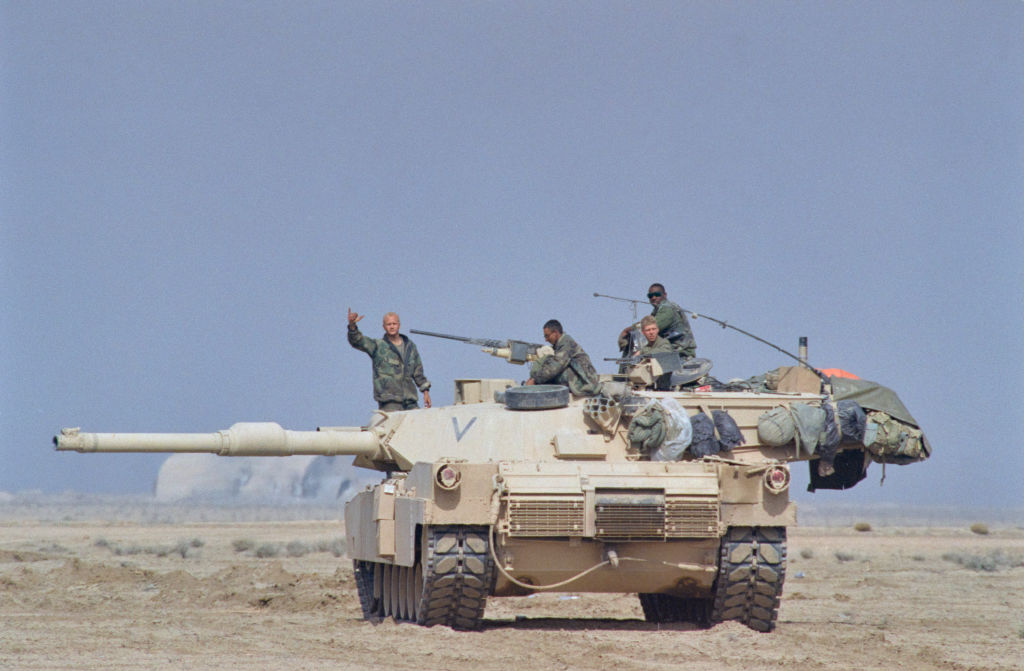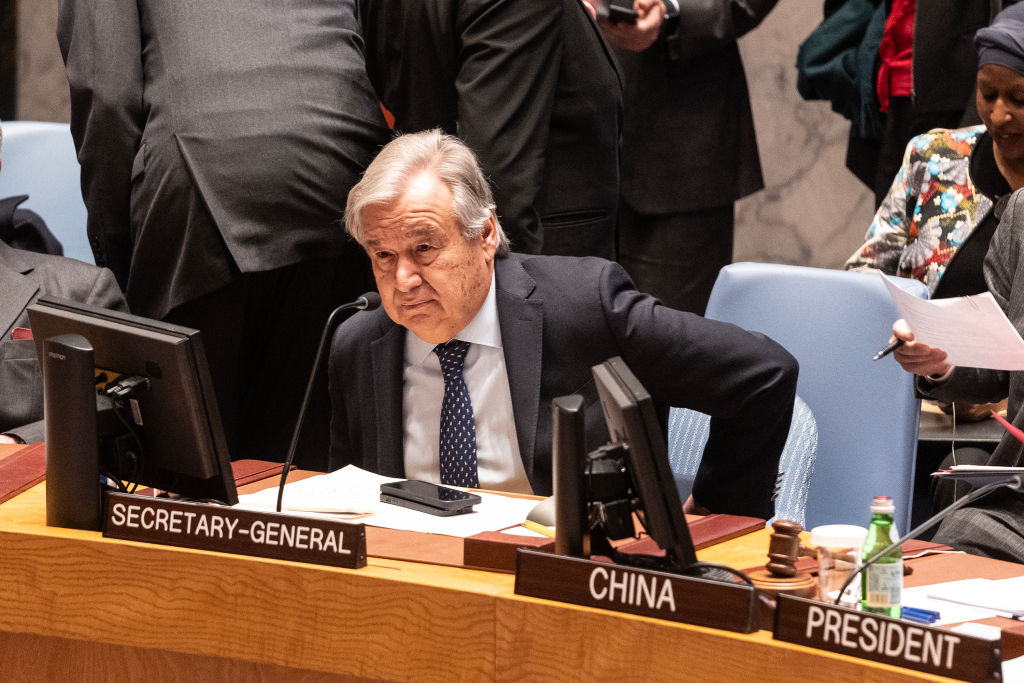The United Nations Security Council voted Friday, December 8, for a resolution to demand a permanent cease-fire in Gaza. Of the 15 nations on the council, 13 voted in favor of trying to force Israel to end its campaign against Hamas with just one voting against and another abstaining. If it weren’t for the fact that all five permanent members – China, France, Russia, the UK, and the US – have the power to veto any resolution, the UN would have handily passed this one.
Without the intervention of the United States, Israel would be facing down a demand by the international community to cease its war on Hamas and immediately release all prisoners – and failure to do so could result (assuming a punitive resolution then passed) in anything from economic sanctions to actual war with a UN coalition.
Article 99 – Denied
 The rarely invoked Article 99 of the UN Charter allows the Secretary-General to call an emergency meeting to “bring to the attention of the Security Council any matter which in his opinion may threaten the maintenance of international peace and security.” This is precisely the power Secretary-General António Guterres called upon to bring a resolution introduced by the United Arab Emirates and backed by other Arab nations to a vote.
The rarely invoked Article 99 of the UN Charter allows the Secretary-General to call an emergency meeting to “bring to the attention of the Security Council any matter which in his opinion may threaten the maintenance of international peace and security.” This is precisely the power Secretary-General António Guterres called upon to bring a resolution introduced by the United Arab Emirates and backed by other Arab nations to a vote.
Every nation but the United States and the United Kingdom voted in favor of stopping Israel in the name of humanitarianism – including China, Russia, and the United Arab Emirates. From the UN press release after the veto:
“The Security Council today failed to adopt a resolution that would have demanded an immediate humanitarian ceasefire in Gaza due to a veto cast by the United States, following a debate earlier in the day that was urgently called for by the UN Secretary-General …
“If adopted, the resolution – presented by the United Arab Emirates – would have also demanded the immediate and unconditional release of all hostages, as well as ensuring humanitarian access.”
According to Mohamed Issa Abushahab of the United Arab Emirates, the text drew co-sponsorship from at least 97 Member States in under 24 hours and was “brief, simple and crucial.” Perhaps it was too brief, however.
UN Hypocrisy?
Robert Wood of the American delegation explained after the vote why the United States couldn’t sign off on the resolution. Nearly all of the American recommendations were ignored and the rushed negotiation process resulted in an “unbalanced resolution divorced from reality on the ground.” Also of critical concern was the fact that the resolution failed to condemn Hamas’ terrorist attack on October 7 – the very incident that started this whole mess – nor did it explicitly state that the International Committee of the Red Cross must be given access to provide medical treatment to the hostages still held by Hamas. Finally, the text failed to recognize Israel’s right to self-defense entirely.
But back to that “unbalanced resolution divorced from reality on the ground.” Aside from the aforementioned issues, what made the resolution unbalanced? To be in compliance, Israel would have to withdraw troops from Gaza, ceasing military action against Hamas. And since the resolution requires all hostages to be released immediately and unconditionally, that means Israel would have to set free all Palestinian prisoners without first securing the release of the remaining hostages taken by Hamas.
If Hamas was willing to violate myriad international laws by raiding Israel and taking civilian hostages to begin with, what makes anyone at the UN believe the terrorists would comply with the resolution? There’s little in the way of incentive for Hamas to release the remaining hostages or to allow the IDF to withdraw safely from attack. Indeed, one might be forgiven for assuming that no one in the 15-nation Security Council with a proven history of anti-Israel bias believed for a second that they actually would.
The UN Has Teeth – But Would It Bite?
If the United States hadn’t taken a stand against this resolution last week – if instead the American delegation followed the UK’s lead and abstained – the measure would have passed. Then what?
When Israel almost inevitably refused to comply, the UN Security Council could then bring another resolution on punitive action – which could range anywhere from economic sanctions to actual military action.

(Photo by David Turnley/Corbis/VCG via Getty Images)
Yes, you read that correctly – the UN Charter allows the Security Council to authorize an international force. It famously happened in 1991 when a US-led military alliance was created to stop the invasion of Kuwait by Iraqi leader Saddam Hussein. In total, about 670,000 troops from 28 countries out of a 39-country coalition – 470,000 of whom were American – were deployed. The Allied losses were estimated at 250 – again, most of them were American – and anywhere from 20,000 to 35,000 Iraqi soldiers were killed. Iraq is estimated to have lost over 3,000 civilians in the war, and Kuwait over 1,000.
Just how far would the anti-Israel UN go to protect Palestine from the consequences of terrorist action? Thanks to that US veto, the world may never know.




